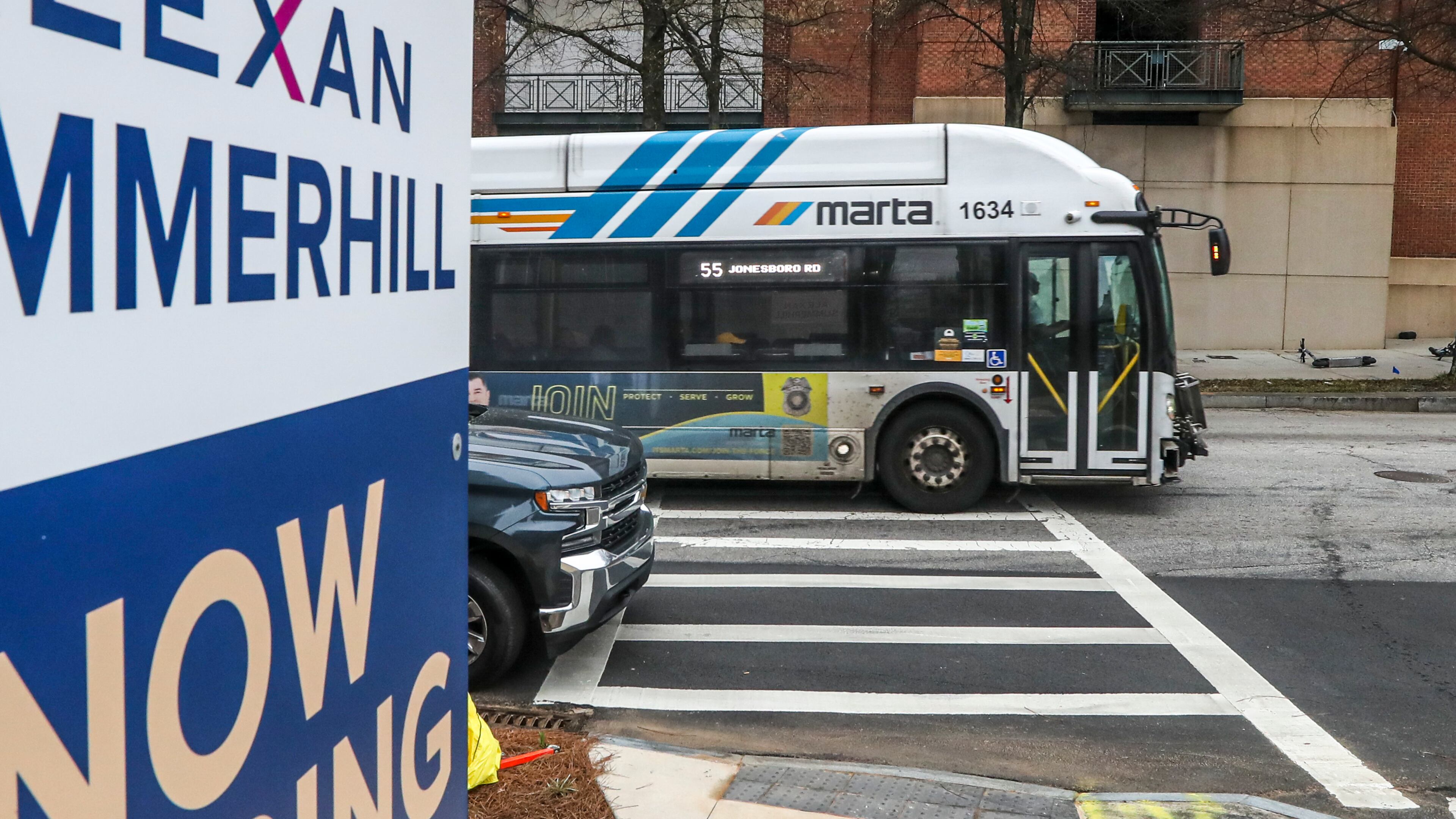OPINION: How ‘More MARTA’ became `Hardly Any MARTA’

A long-awaited audit of Atlanta’s More MARTA fund was released last week and contends MARTA owes the program $70 million.
In 2016, Atlanta voters approved a half-cent sales tax to generate an anticipated $2.7 billion(ish) over 40 years to fund lots of transit projects in the city, hence the name “More MARTA.”
But since 2017, when the money started rolling in, virtually nothing has been built.
I hear they’re rebranding it “Hardly Any MARTA.”
The city’s audit, performed by the firm Mauldin & Jenkins, said the agency overcharged the city $70 million for the increased level of bus service it said it was adding.
MARTA says auditors used a “flawed methodology” to create “false calculations.”
Board chair Kathryn Powers complained auditors gave the agency just two days to answer questions after investigating for a year. And Republican state Rep. Deborah Silcox, chair of the MARTA Oversight Committee, wants an audit of the audit.
The city audit found that More MARTA brought in $493 million between fiscal year 2017 through FY 2023. (Those half pennies really add up!) It’s been 14 months since FY 2023, so that total is probably $600 million.

Also, $69 million was spent during that time on 13 More MARTA projects. Again, that accounting period ended June 30, 2023, so probably $100 million has been spent on projects with little yet to show.
Granted, it’s not like the old days when you could immediately start laying tracks. Today, there’s environmental and engineering studies, bond fees and consultants.
How about the $1,742,150 of More MARTA money spent on “communications” during four years ending FY 2023?
That’s ironic because the audit criticized MARTA — and the city — for bad communications.
The audit said the agreement between the city and MARTA doesn’t properly spell out how the two should talk with each other. So they don’t do it well.
Auditors noted the agreement between the two entities doesn’t spell out what MARTA should tell city officials in the mandated quarterly briefings.
“As a result,” the auditors noted, “MARTA has been left to develop their own presentation formats and provide the information that they think the city is interested in receiving.”
Just like many marriages — tell your partner what they want to hear.
The problem isn’t so much misspending or miscommunicating. It’s been the prodigious dithering.
There’s been an absence of decisions being made on exactly which projects should be focused on and built.

Back when More MARTA was sold to voters, the wish list had 73 potential projects. But as every kid knows, Santa can’t deliver all you want, so it was whittled to 17.
Last year, pointing to delays and rising construction costs, the city, in essence, cut the list to nine, creating a Tier I list and eight (or so) also-rans, known as “Phase 2,” or May Never Get Built.
Some plans have been reduced in scope. Light-rail on Campbellton Road was shaved to Bus Rapid Transit, which is a bus that travels in its own lane. But it’s still a bus.
Auditors found 15 incarnations of a “sequencing list” of what projects should be built first. They also discovered that the latest list has not been officially approved, so MARTA is obliged to work on all 17 projects, even though there is no real priority as to what the city really wants.
So far, Bus Rapid Transit from the old Turner Field to downtown is moving along and improvements to the Bankhead station should be starting.
But the $230 million Five Points Station rebuild was stalled after city officials and residents held their nose at the design and objected to how long the facility would be closed for construction.
One suggestion — pressure wash it.
Atlanta City Council President Doug Shipman told me “the audit shows the oversight and controls within MARTA are not up to snuff.”
As to MARTA’s complaint that auditors gave little time to answer questions, he said: “These are the same questions I asked 18 months ago. They should be no surprise.”
Shipman said residents are weary. “They want something built.”
But in Atlanta, you need a political abacus — and a tough hide — to do anything because north-south, black-white and rich-poor divisions color every decision.
Rail on the Beltline’s Eastside trail? Well then, what about the south side which just lost its rail? Plus, officials are increasingly realizing it’s not a good use for limited Beltline space.

I spoke with Josh Rowan, Atlanta’s first transportation director who then moved to the transit agency to try and get the More MARTA program moving. He was fired last year and has filed a whistle-blower suit, alleging MARTA was padding consulting fees for a favored contractor. MARTA disputes this.
Rowan, now Oakland’s transportation director, said its a matter of making tough decisions based on straight-forward math.
“How much money do you think you’ll have and how much do you think you’ll spend?” he said. “They don’t know if the nine projects of Phase I can get built. The real question is what can get built? Just lay your cards on the table.”
For years, the two bureaucracies have been at odds.
“Let’s clear our head and forget personal beefs and get going,” he said.



